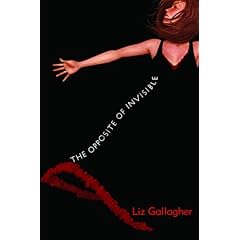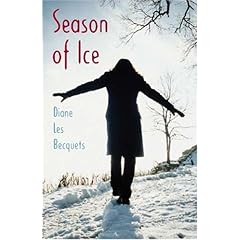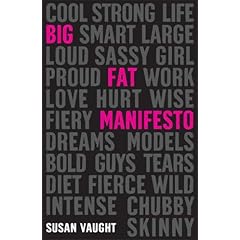
I just finished reading the ARC of Paper Towns, and it was damn near perfect. I want to be a little bit jealous of John Green’s ridiculous amount of talent, but… I just can’t.
Since the book doesn’t come out for, like, six more months (I love my job!), I don’t want to tell too much of the story, but here’s a little bit: It starts out with Quentin Jacobsen, introducing the other major character, Margo Roth Spiegelman, his neighbor since they were toddlers, by telling about something that happened to them in elementary school. They’re now three weeks from graduation, and one night she appears at his window to take him out for a night of pranks/excitement/vandalism. He has the best night of his life and thinks it is going to be totally life-changing. Then she disappears. Like, completely. So the rest of the book is looking for this mysterious girl and piecing together the clues. I wouldn’t have thought of it as a mystery, exactly, though I see that it has “Mystery and Detective Stories” listed in the CIP information, and it’s true – there’s a whole lot of detective work. But, it’s not like a Sherlock Holmes mystery or anything, it’s much more internal: Quentin figuring out this girl, himself, and the way we are all connected.
Things that were awesome about Paper Towns:
Thing 1: It was structured in a really interesting way. I can’t say more without giving too much away. It didn’t seem to follow a traditional plot mountain, though, and it totally worked. (Did you all have to diagram stories with those plot peaks in middle school?) I fear that I was kind of useless while I was reading it, because I kept getting really involved in it and realizing that I’d just lost 30 minutes because there were so many “hangon,thisisareallyexcitingpart” parts.
Thing 2: Such great characters. On one hand, they’re very real teenage guys. They talk like teenage guys, they make jokes like teenage guys, they talk about stuff teenage guys talk about. On the other hand, they’re super smart teenage guys, with brilliant interior dialog, and it was so cool to watch Quentin fitting stuff together and thinking about life in the terms that I fear we lose as we get older.
Thing 3: Like with John Green’s other two books, there are all kinds of great, smart references. Song of Myself plays a big part in the story; Sylvia Plath, T.S. Eliot, Emily Dickinson, Woody Guthrie (yay!), and Moby Dick also all make appearances. There’s so much other stuff, too, and it’s amazing to me, here and in the other books, how much stuff he can pack into one book without it ever feeling confusing or cluttered.
Other, smaller stuff: I went to a panel at TLA where one of the things that was mentioned was the lack of parents in YA fiction. The answer was mainly that to have the teenage main character take off on his/her own adventure, you had to get the parents out of the way. It makes sense, but it also made me notice how present the parents were in this one. They weren’t intrusive, but it made for a realistic story about a high school student. And, mostly, it doesn’t matter, but I noticed, since I’d been thinking about it recently.
It was really interesting reading this book after having watched a good part of John Green’s life last year on Brotherhood 2.0. It was kind of interesting to see things pop up in the book and wonder if they were a nod to things discussed there, or to recognize things that there were B2.0 videos about that I now realize were research, like urban exploration. It seems like it should have been distracting, but it wasn’t at all. I really liked it.
Anyway, I love, love, loved it. Can’t wait to hear what others thought. In the meantime, I think I’ll go read Leaves of Grass.
A note on the two covers: when I first heard about the two covers, I thought, "Cool. I like it when books do that." When I heard that it was to illustrate the different ways this girl is perceived I thought it was a little... something. Overly dramatic? Something. But now, I love the cover. I'm still not nuts about the photos, but it really, really works with the book. Also, I was very impressed that (at least on the advanced reader copy), the letters are raised on the yellow, sunny version, and indented (depressed?) on the blue, sadder version. I'm impressed they made the effort. It's pretty cool. For the record, when I go to buy my real copy, I'm going to choose blue. Ooh, I wonder which color the library will get?! One or the other? An even mix?
 I love when sequels are just as good. As in its predecessor, The Mysterious Benedict Society consists of four orphans (now happily living with various loved ones via reunion or adoption!) solving puzzles through working together. When Mr. Benedict, namesake, gets kidnapped, the kids must band together again.
I love when sequels are just as good. As in its predecessor, The Mysterious Benedict Society consists of four orphans (now happily living with various loved ones via reunion or adoption!) solving puzzles through working together. When Mr. Benedict, namesake, gets kidnapped, the kids must band together again. 















